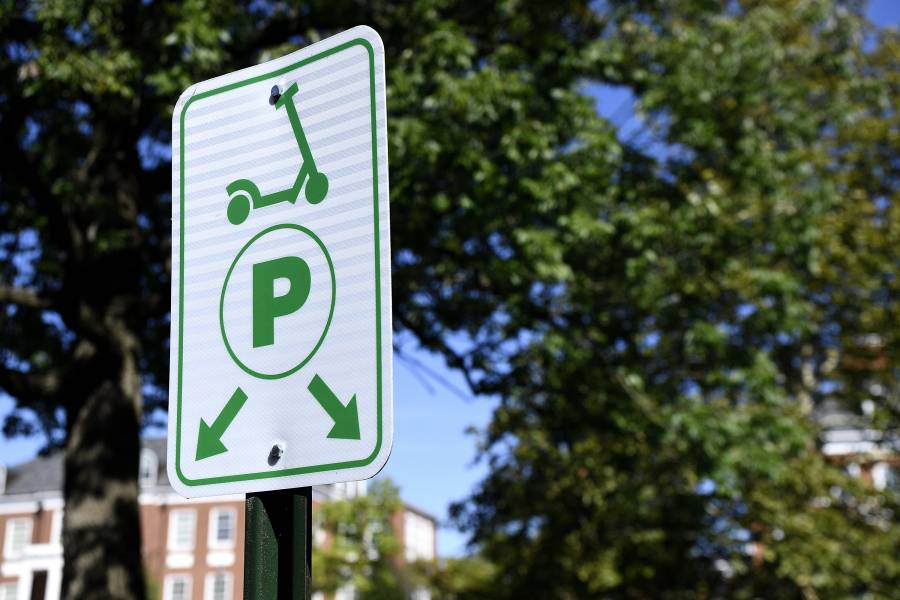Johns Hopkins University is asking students, faculty, and staff to be aware of policies regarding motorized vehicles—particularly rentable scooters, which have grown in popularity in Baltimore and Washington—and to use good judgement when traveling on scooters or bikes and leaving them parked on JHU campuses.
A Johns Hopkins policy developed with feedback from more than 300 undergraduate and graduate students prohibits riding motorized devices on campus sidewalks but allows them on campus roadways where other vehicles regularly travel.
"If you use a scooter or other personal motorized transportation device, please keep it off campus walkways and away from pedestrians," wrote Johns Hopkins Public Safety and Johns Hopkins Transportation Services in an email to the Hopkins community.
The Johns Hopkins policy applies to all motorized personal transport devices, except mobility aids such as wheelchairs and mobility scooters needed by students, patients, visitors, and staff with disabilities. Also excluded from this prohibition are vehicles and devices owned by JHU and JHH, such as Segways, motorized carts, and other equipment, that are used by staff in the performance of their duties, and motor vehicles that are registered with the state.
Johns Hopkins has also received numerous reports about unattended scooters or bikes blocking a building entrance, pathway, ramp, curb cut, or accessible route for individuals with disabilities.
"We need our community members to be aware of the importance of accessibility for individuals with disabilities and park scooters and bikes in designated areas," said Kevin Shollenberger, vice provost for student health and well-being and interim vice provost for student affairs. "People should also make sure not to lock their bikes to handrails or other items that need to be clear to be useful," he said.
For the Homewood campus, the university has identified 17 areas where you can park a scooter before continuing your campus travel on foot. A map is available on the JHU Transportation Services website. The university has also worked with the scooter companies to set up a perimeter—marked on the map—within which rentable scooters will stop working.
The message also reminded readers that Baltimore City laws do not allow scooters to be ridden on sidewalks except on streets where the speed limit is 30 mph or greater. The city website reminds scooter and bicycle users to always ride slowly, carefully, and courteously on city sidewalks.
"We appreciate everyone's support in creating a safe, inclusive, pedestrian-friendly environment on our campuses," says Shollenberger.
Posted in University News
Tagged public safety, scooters, bikes, campus








